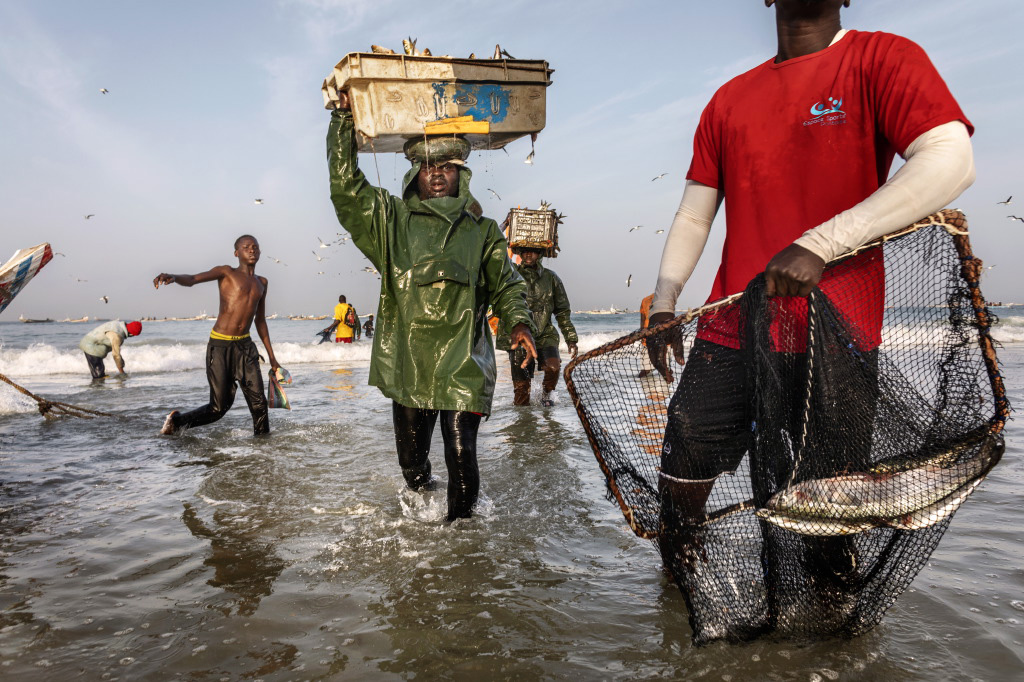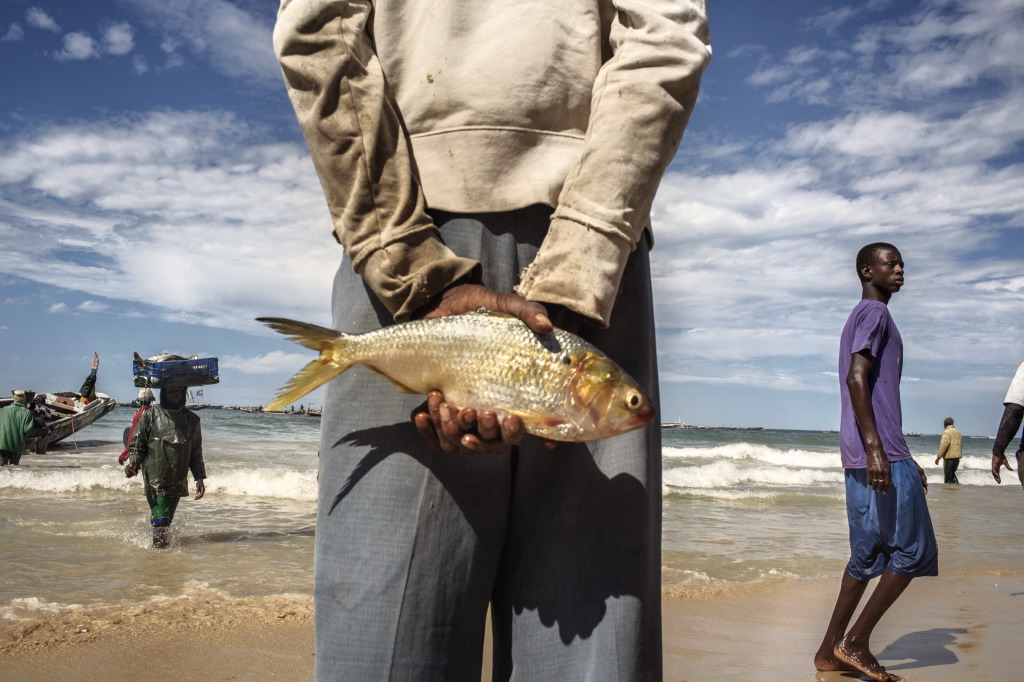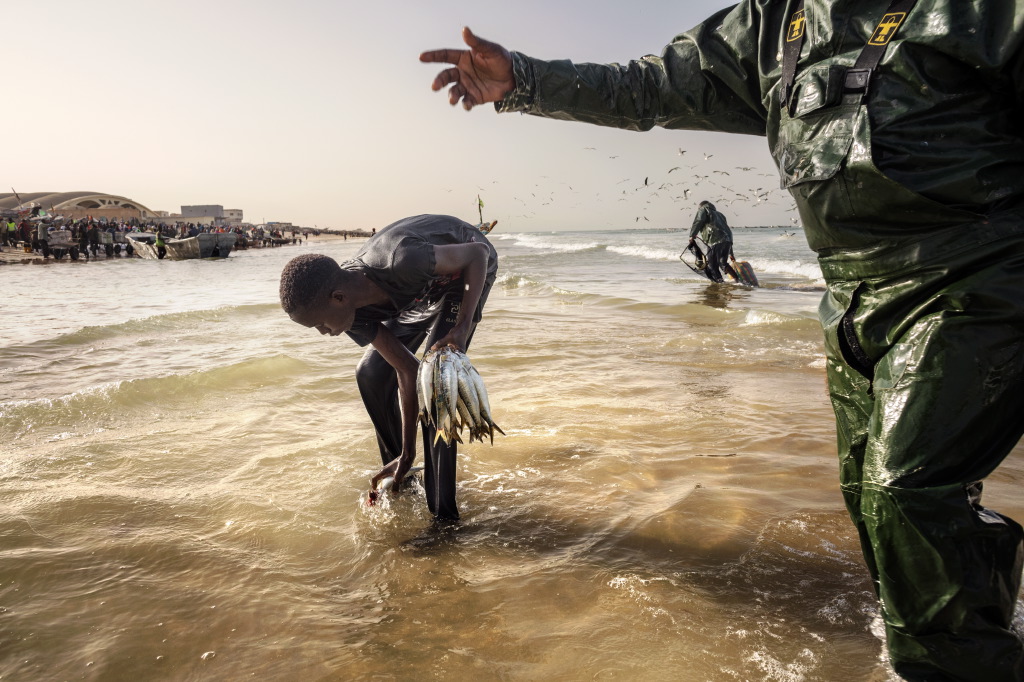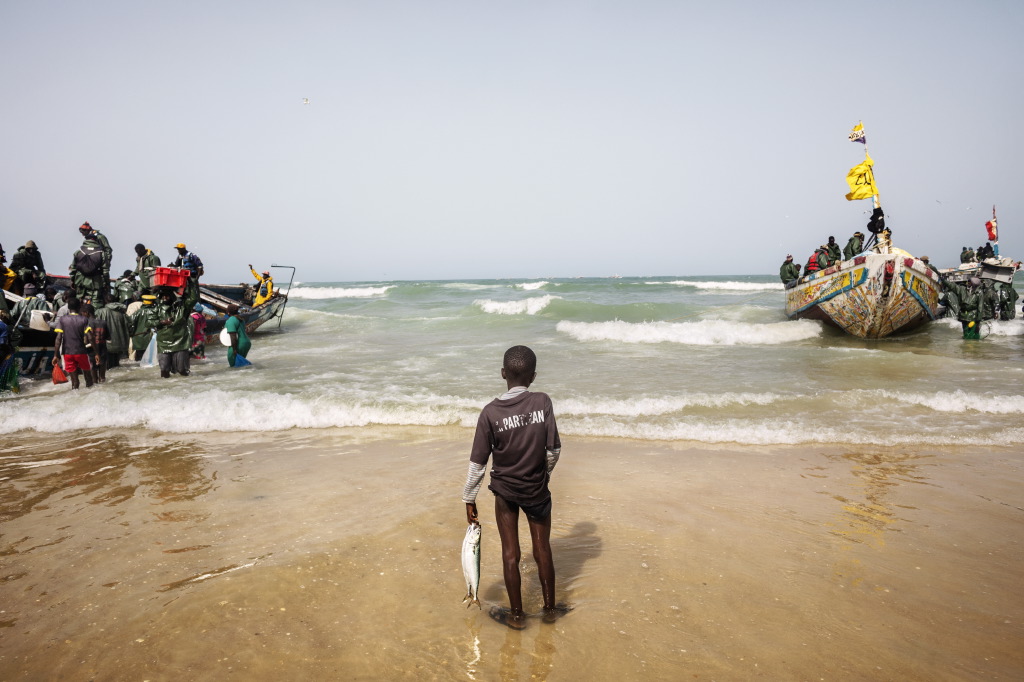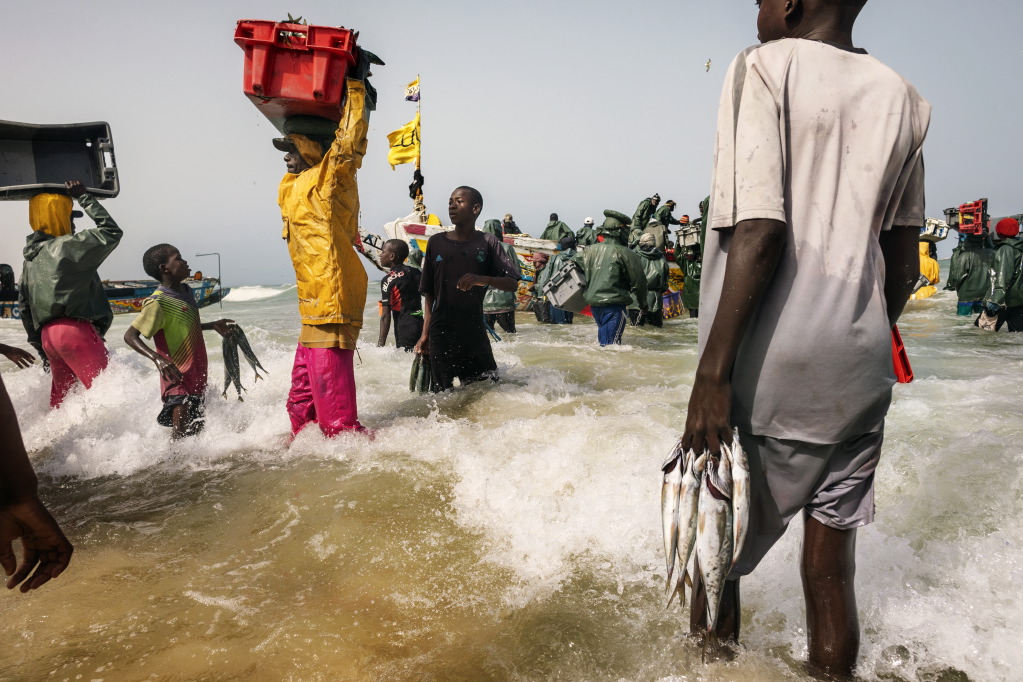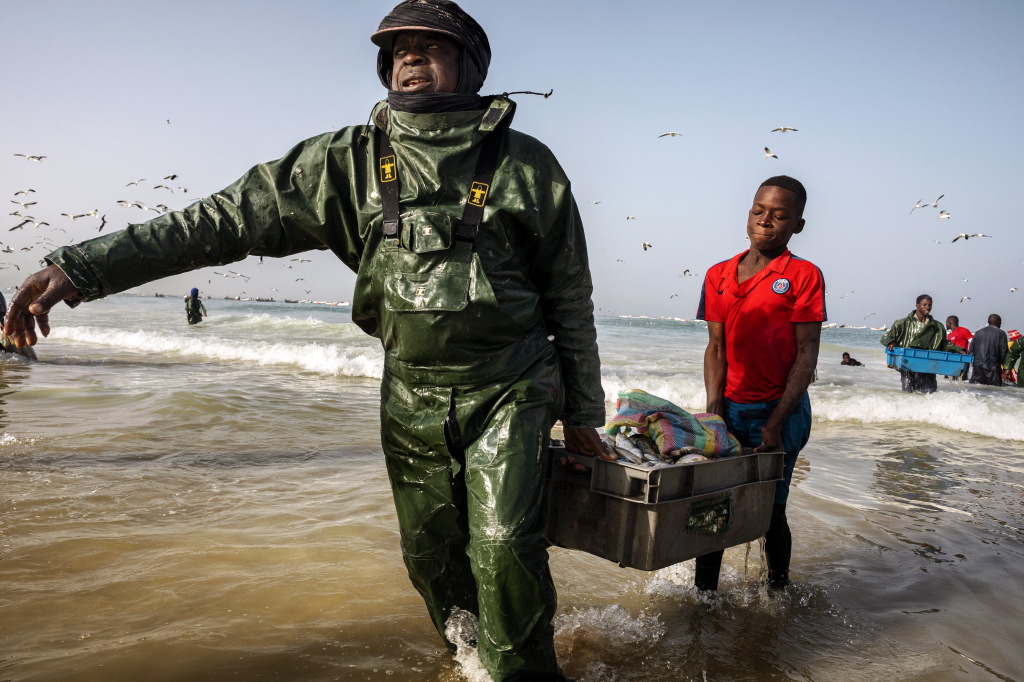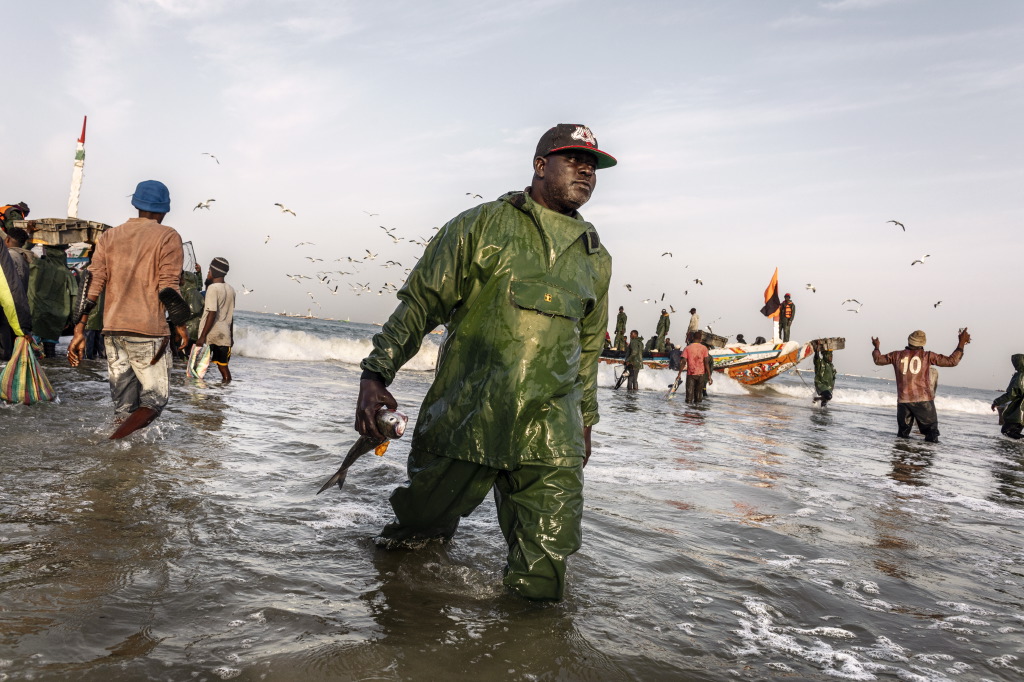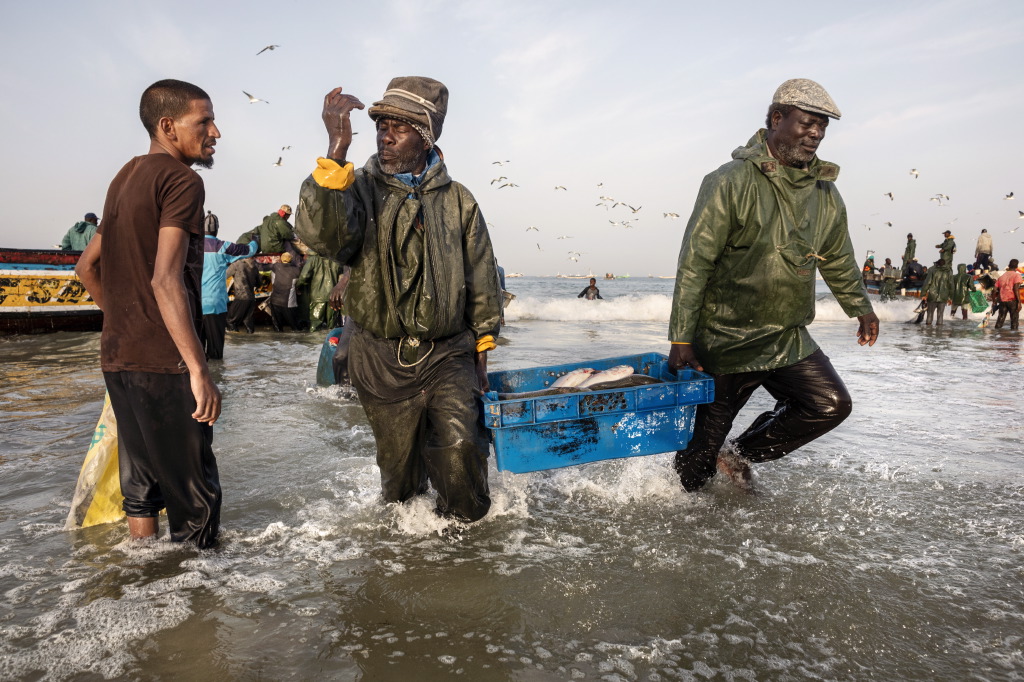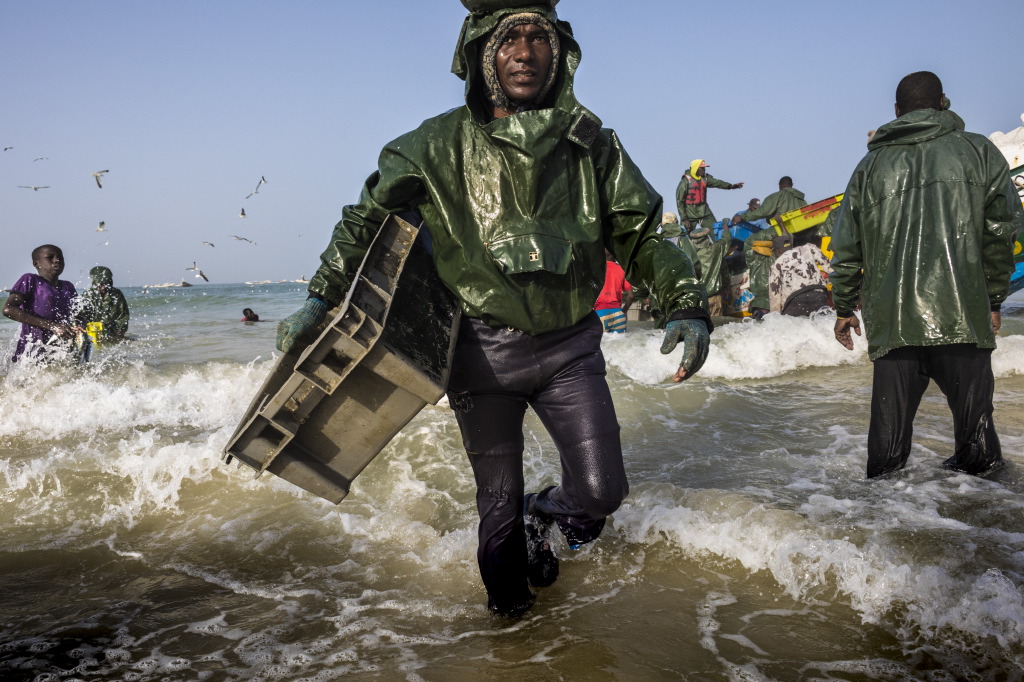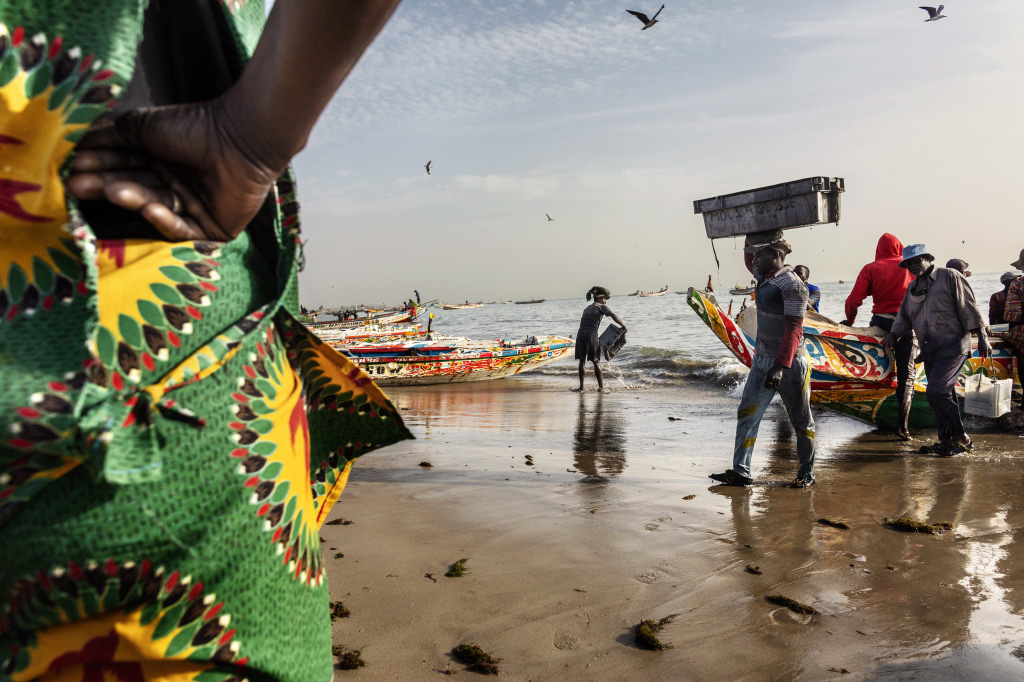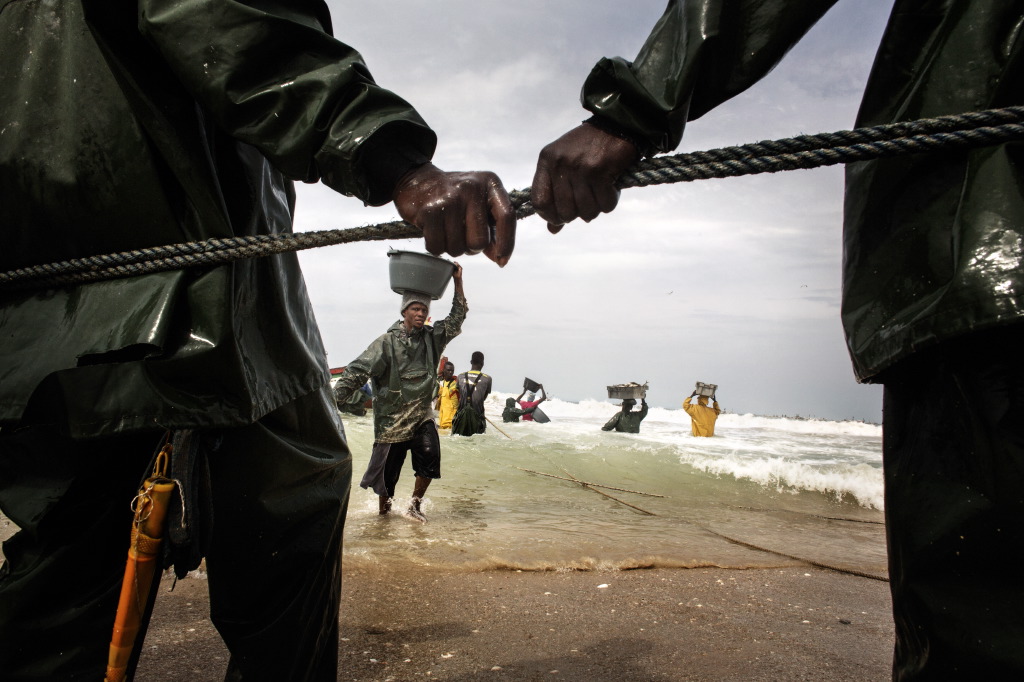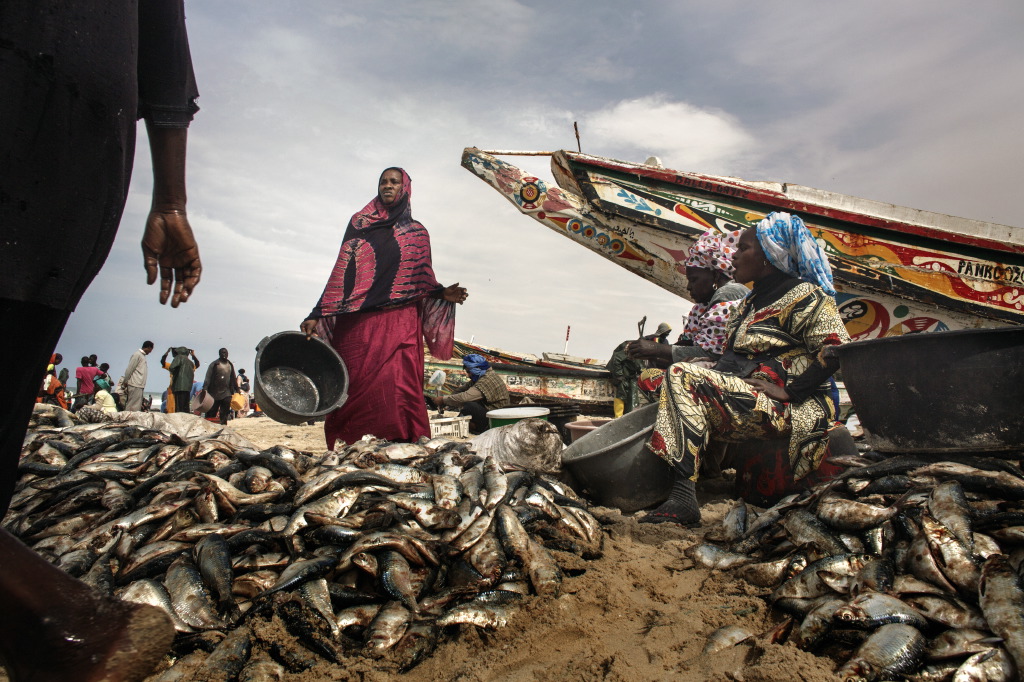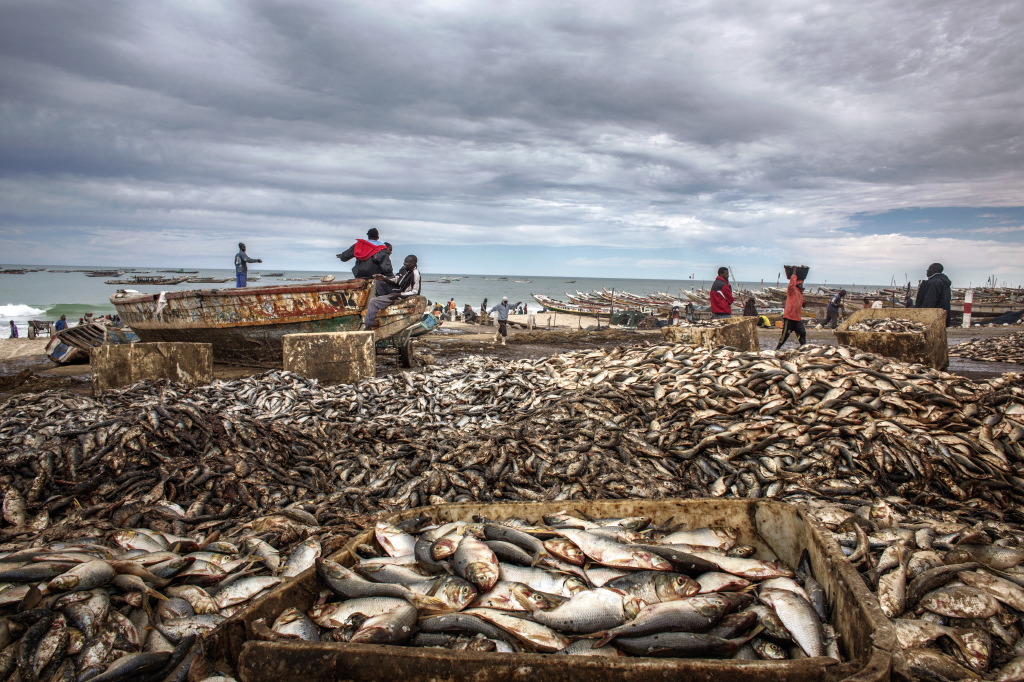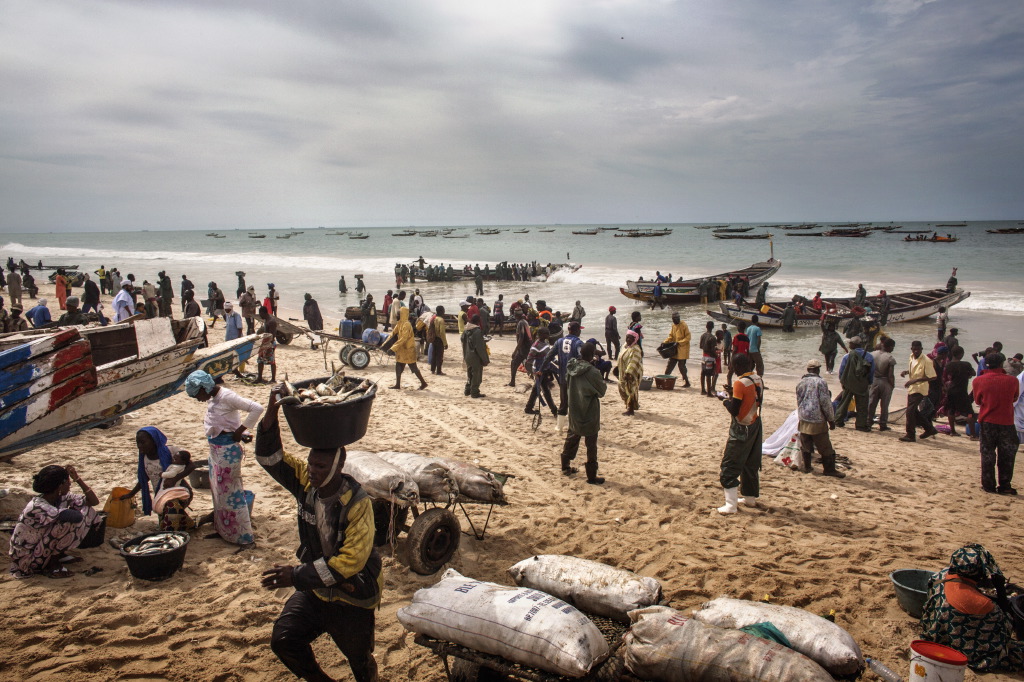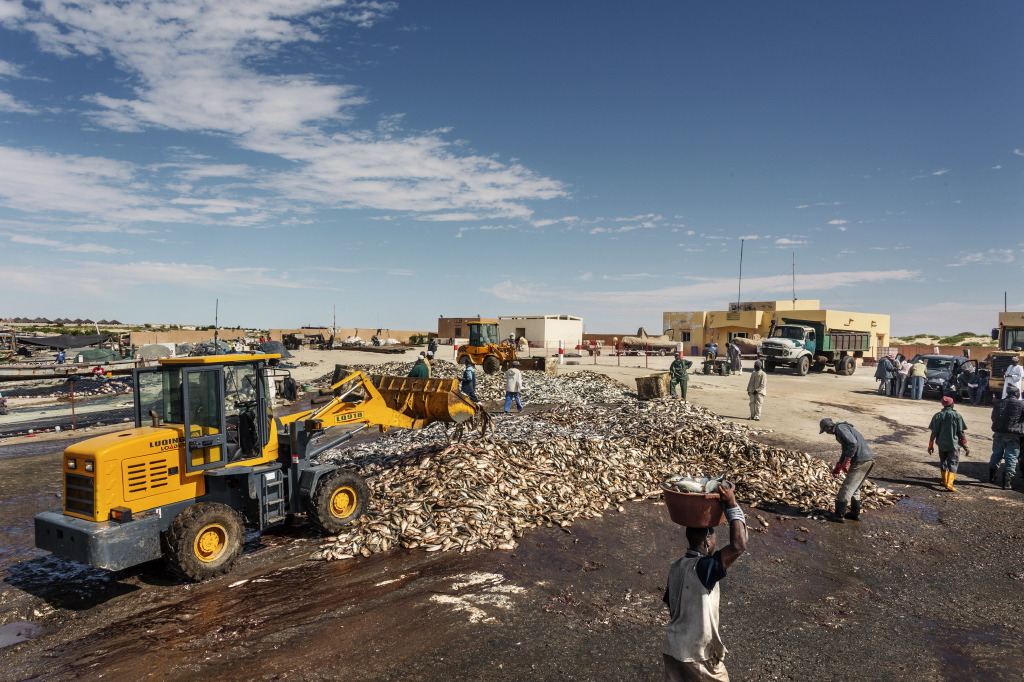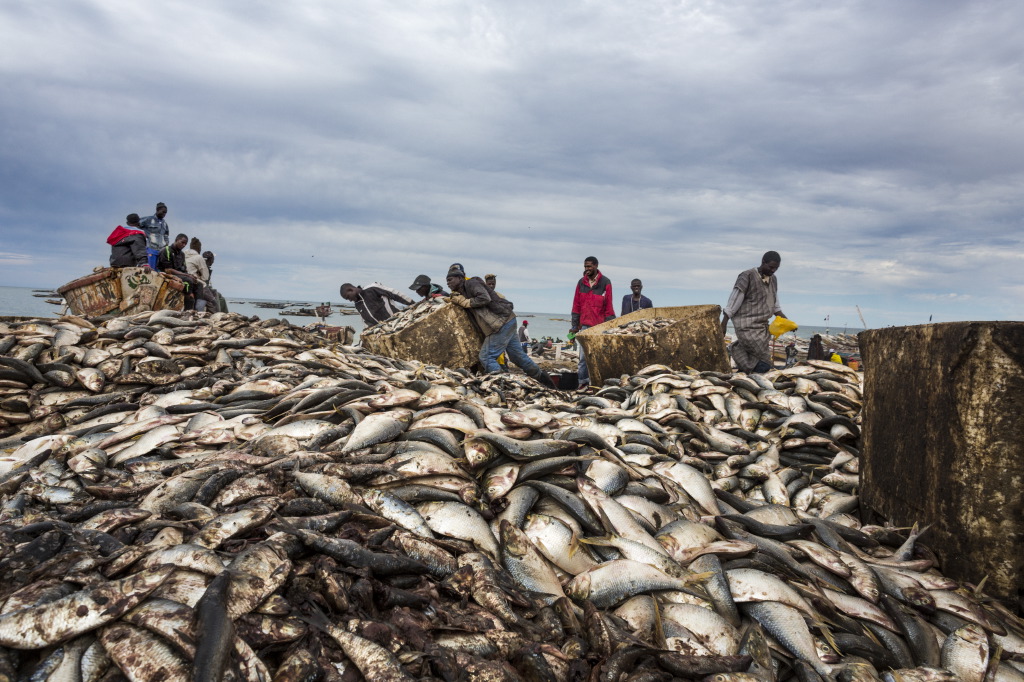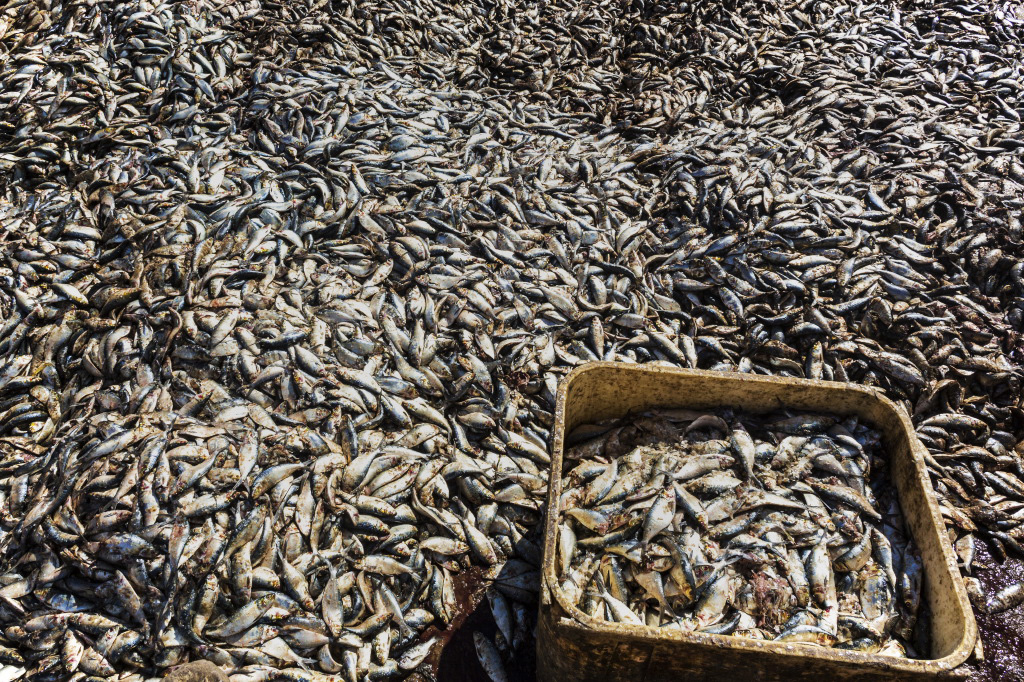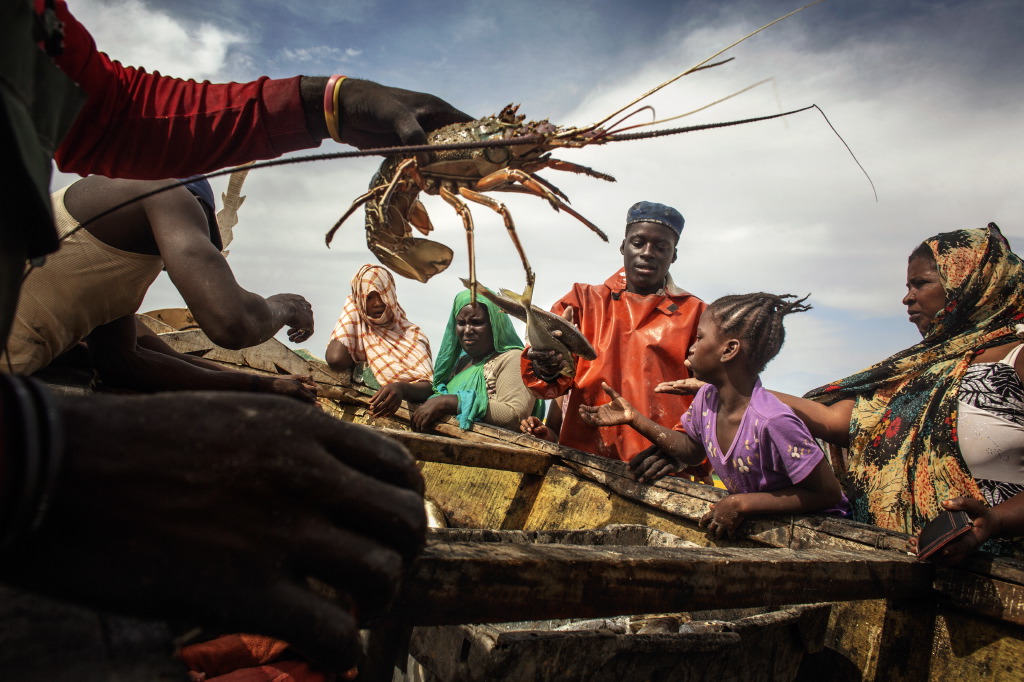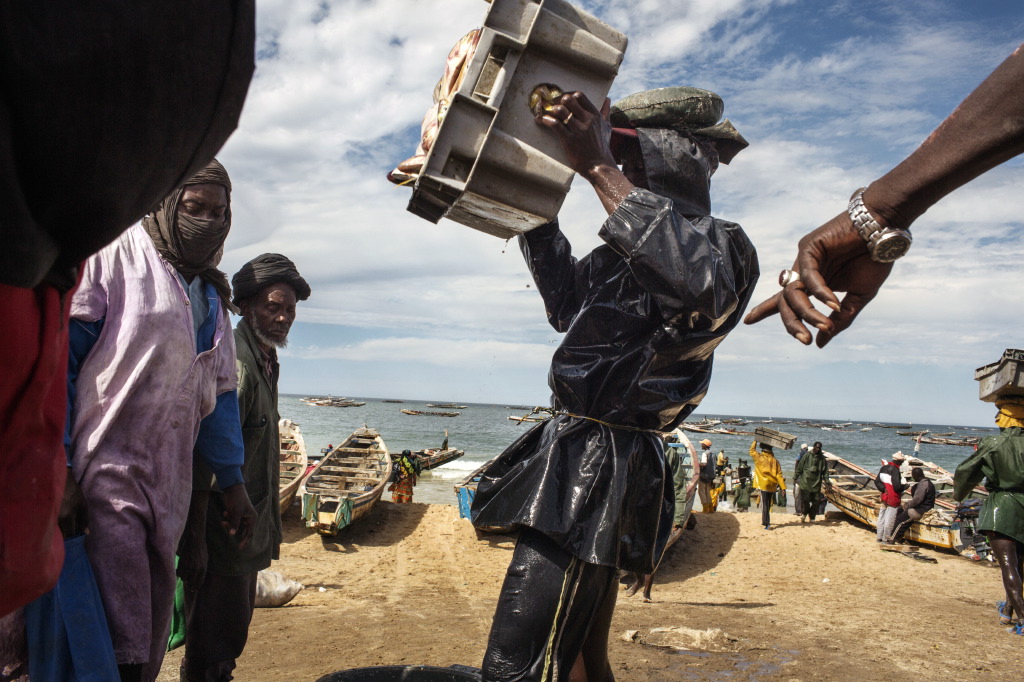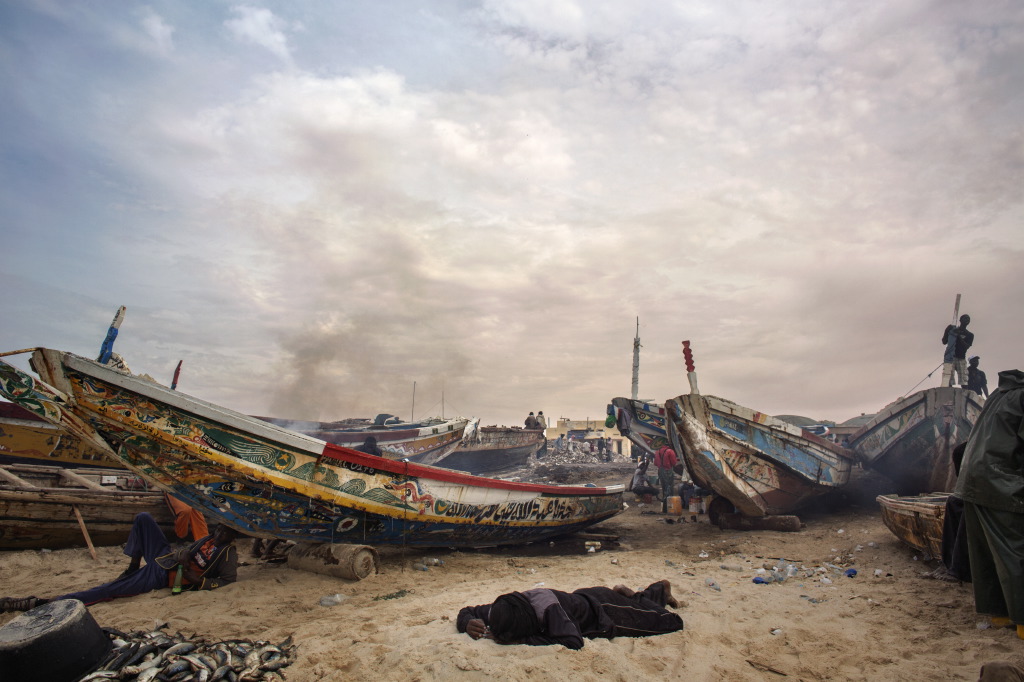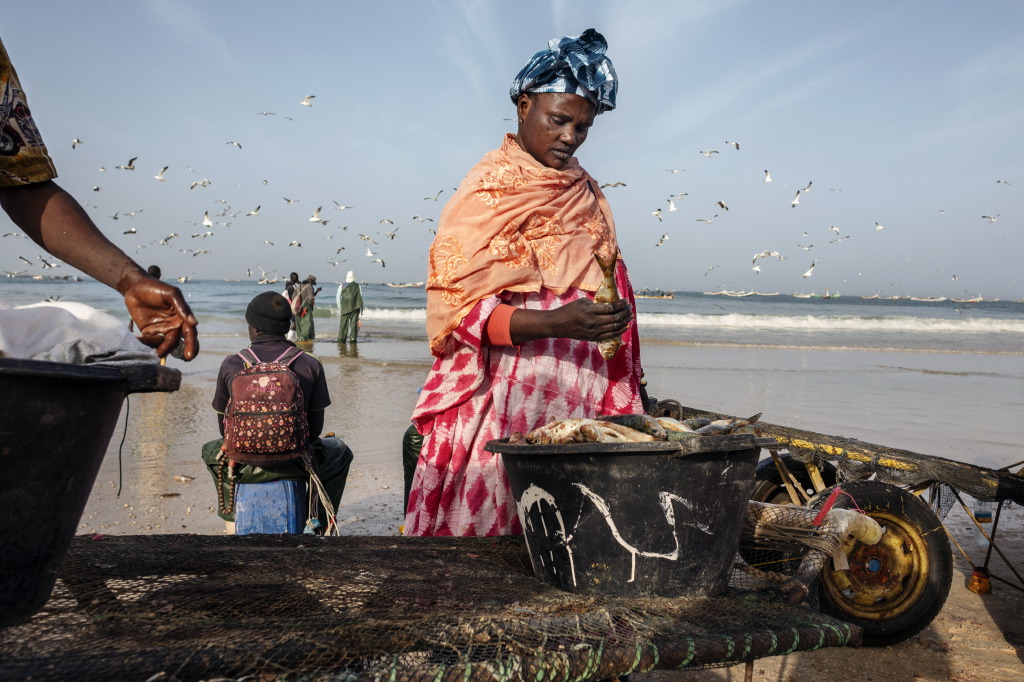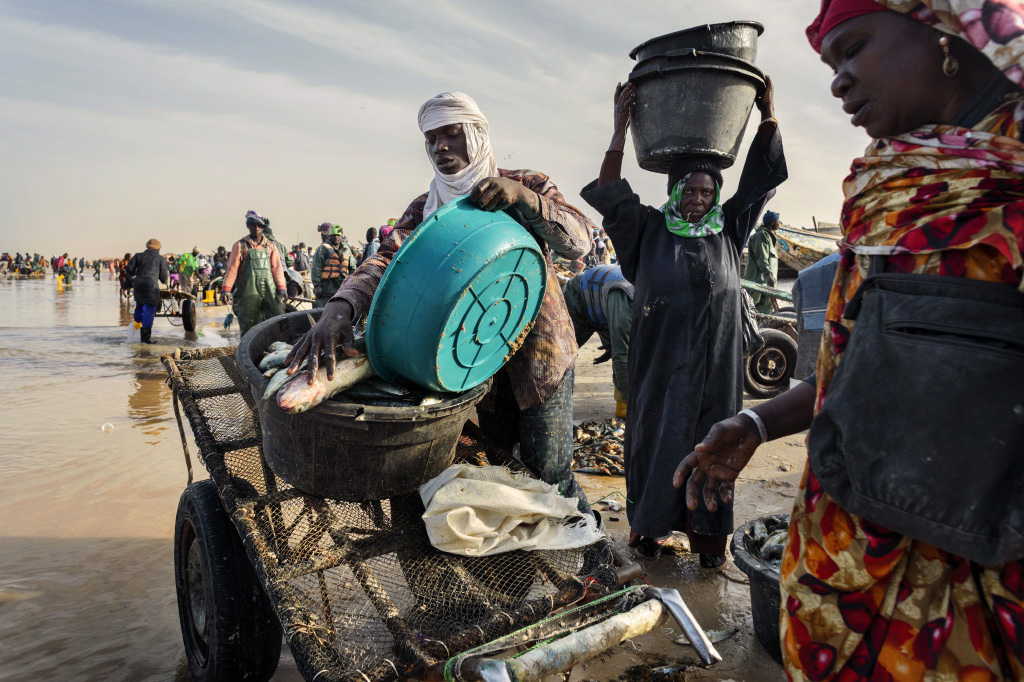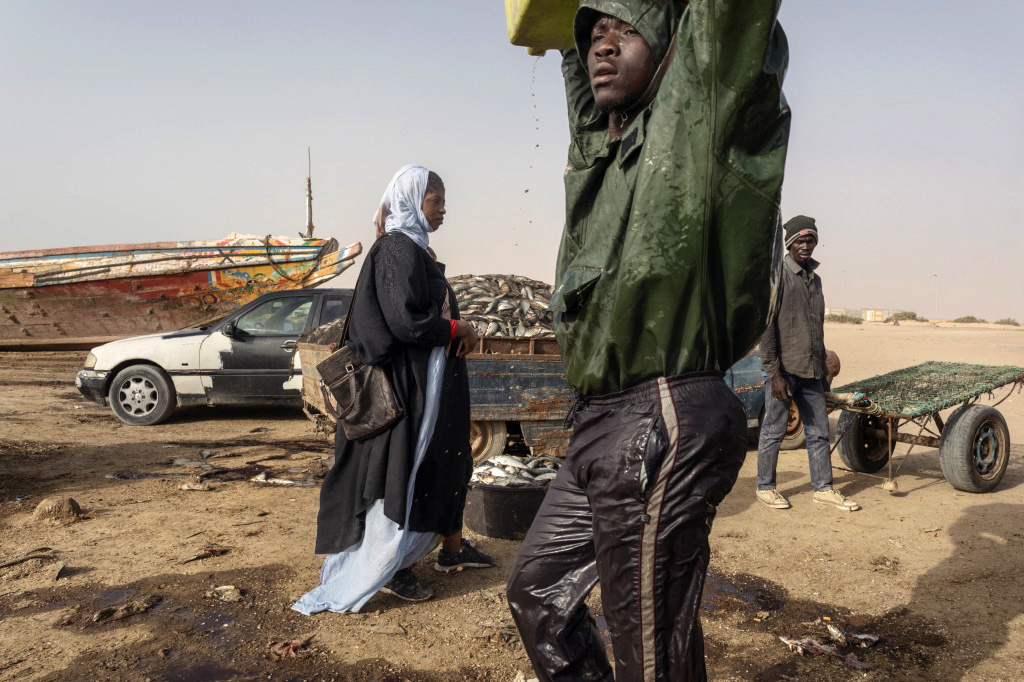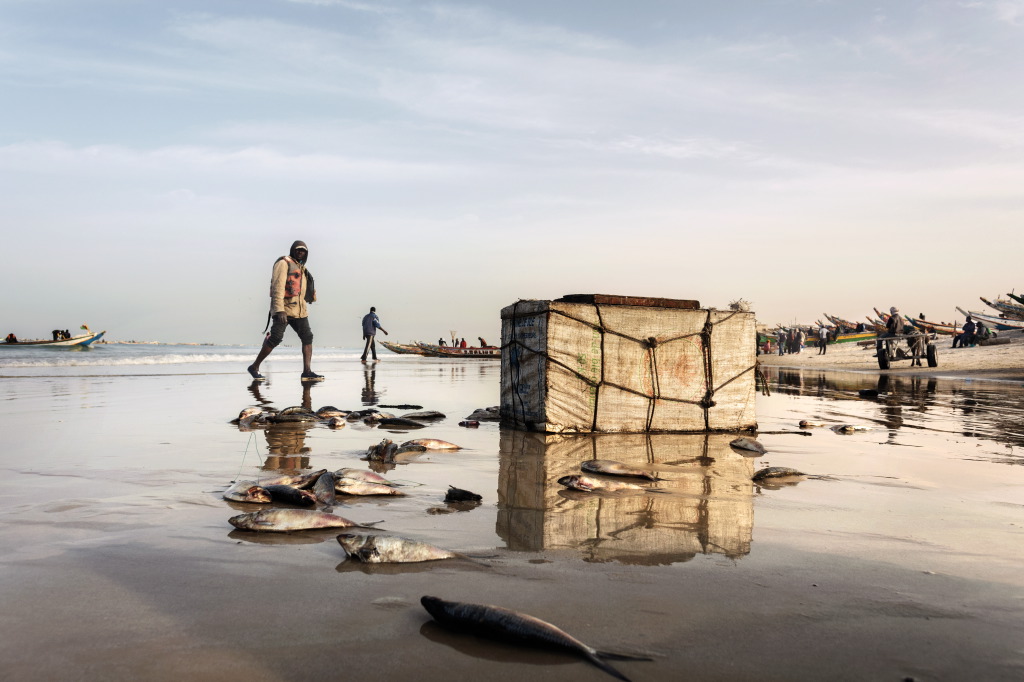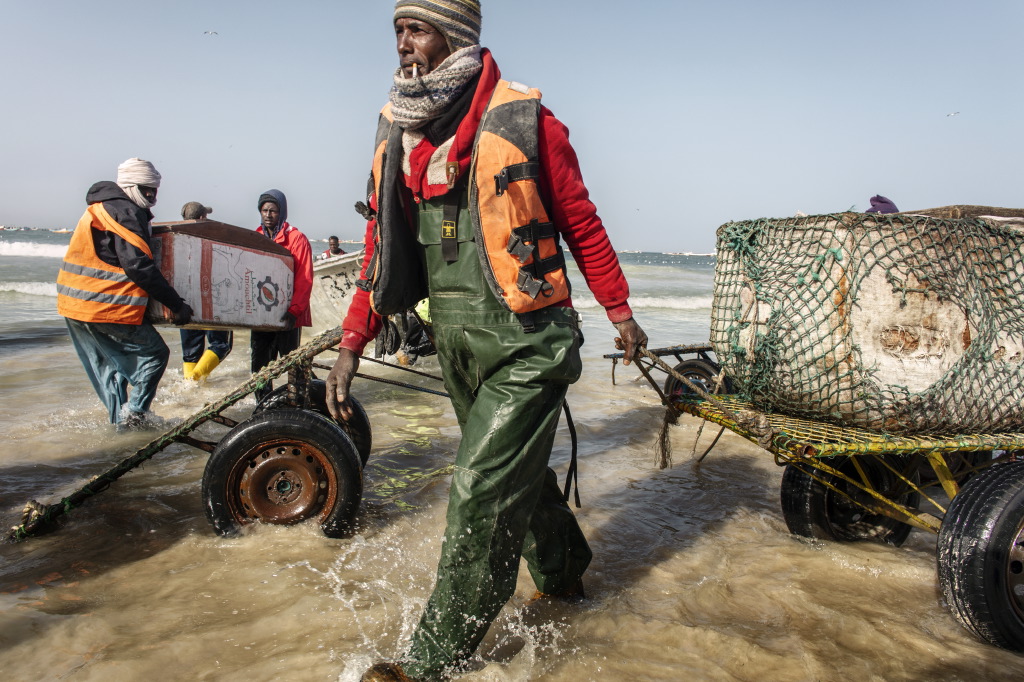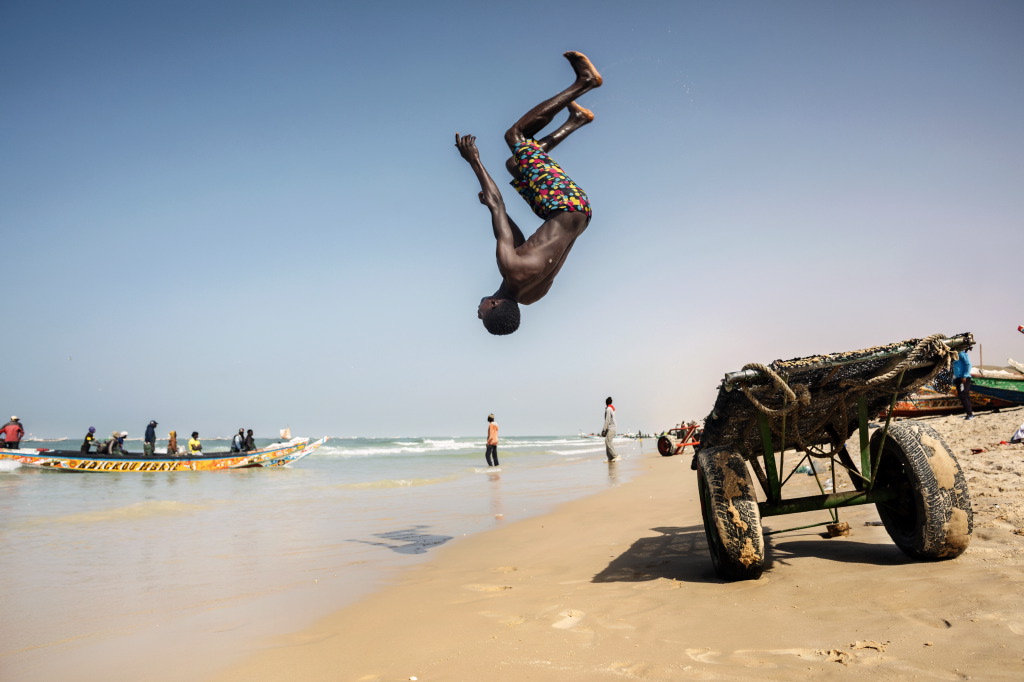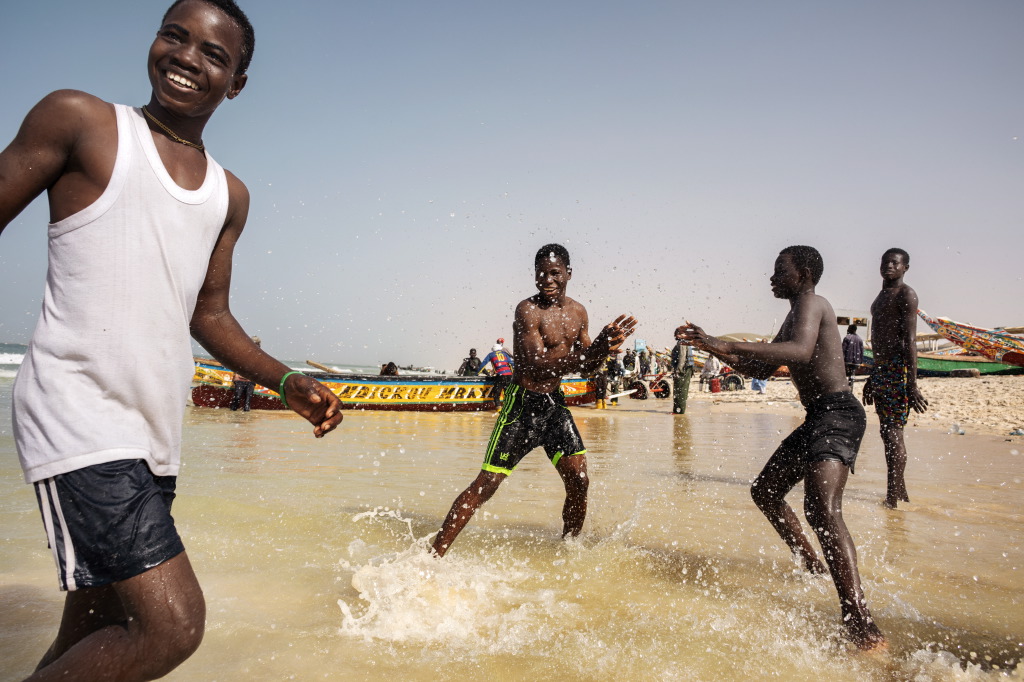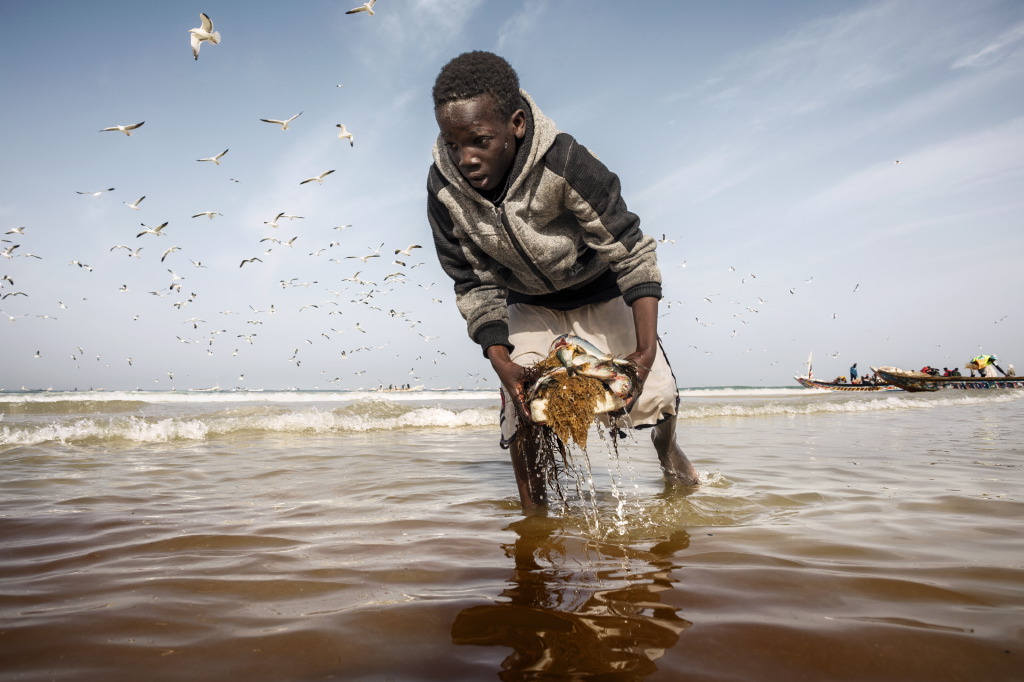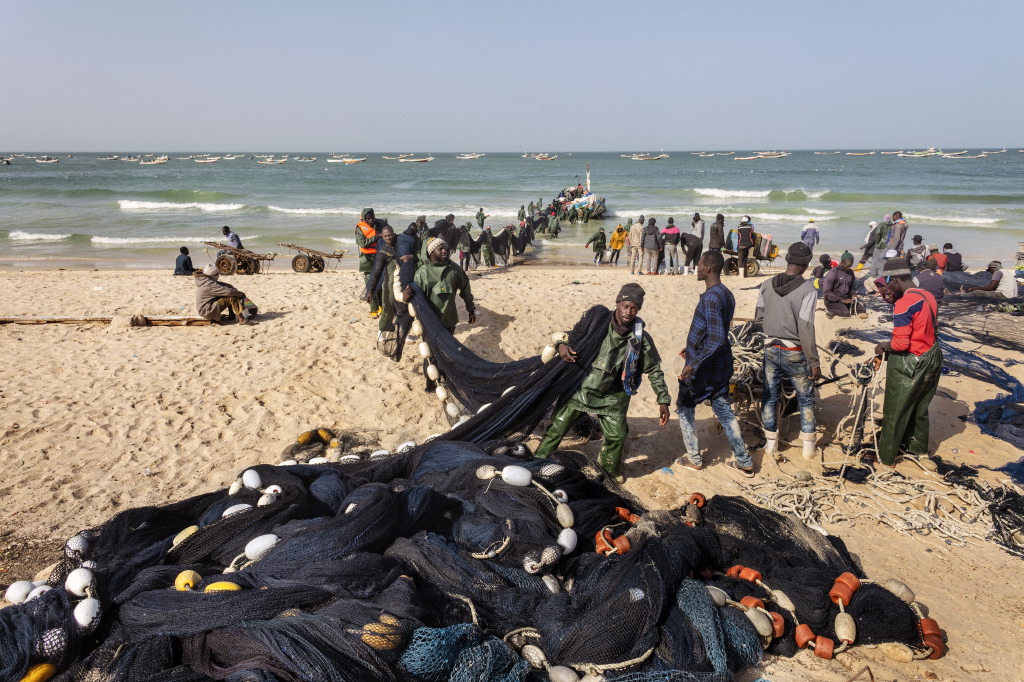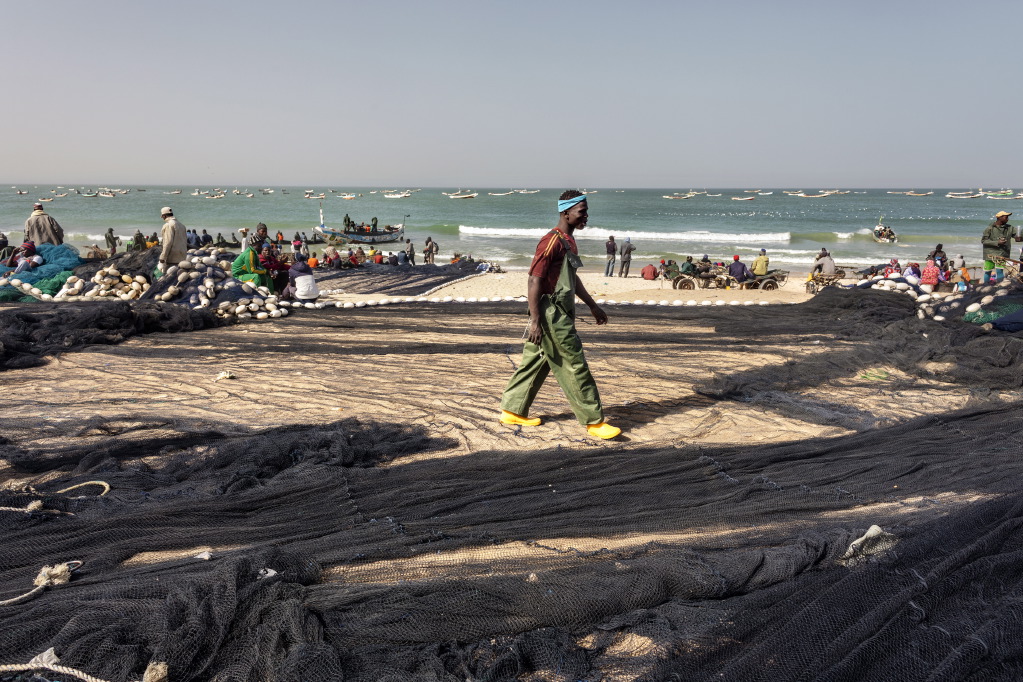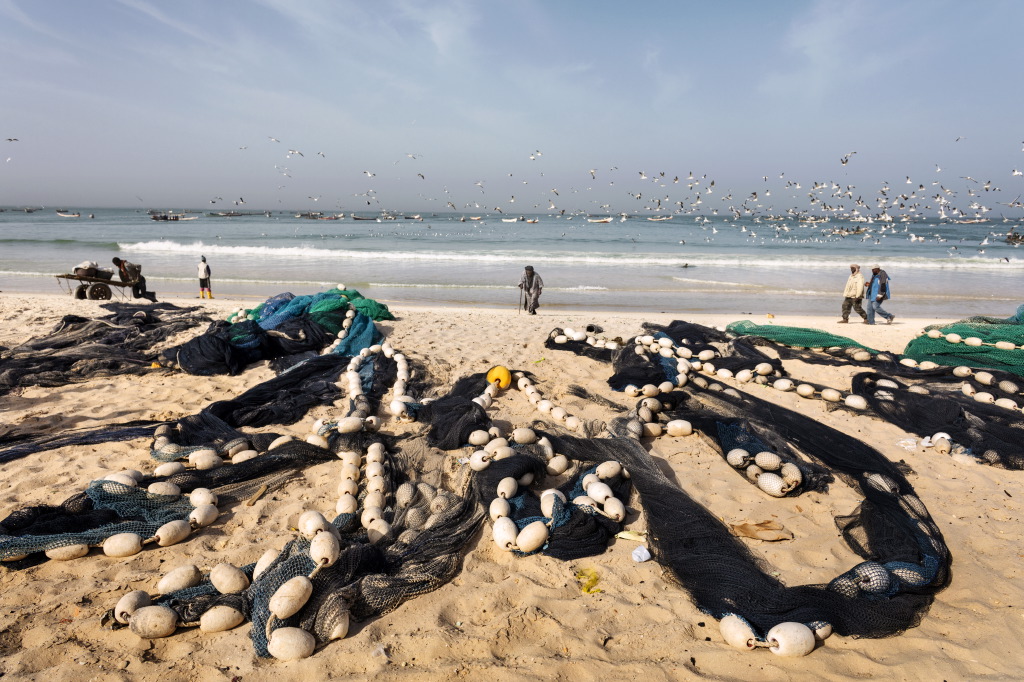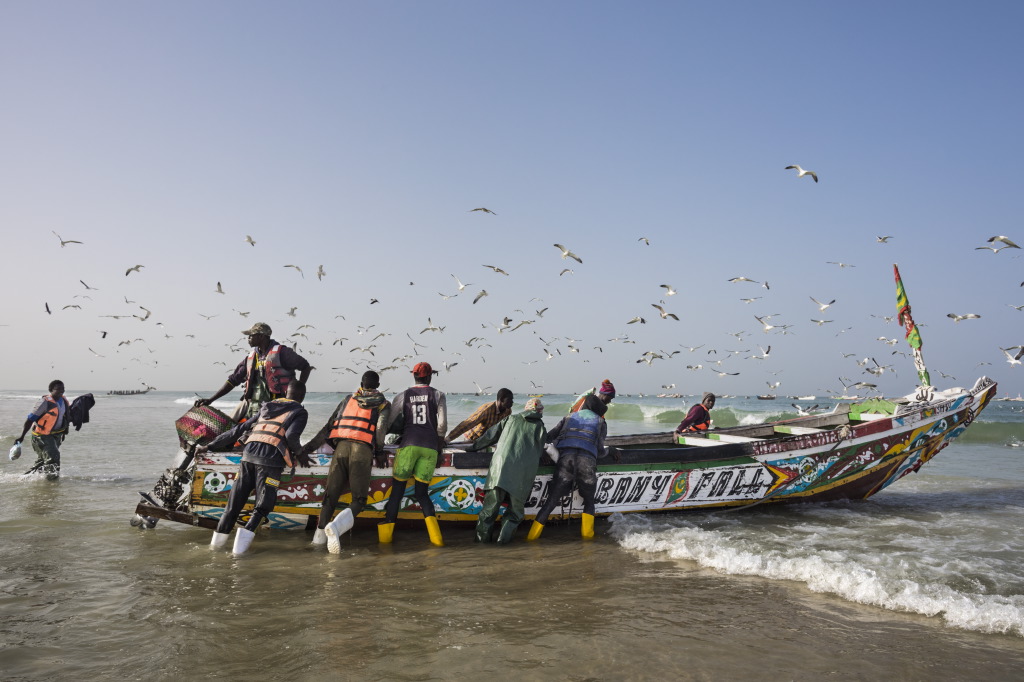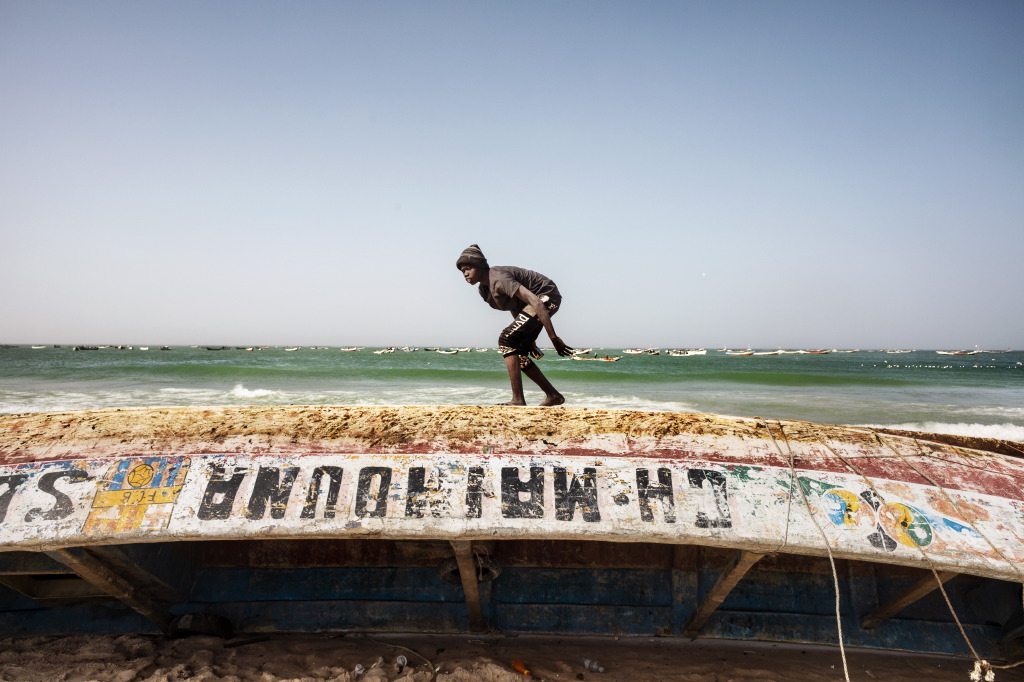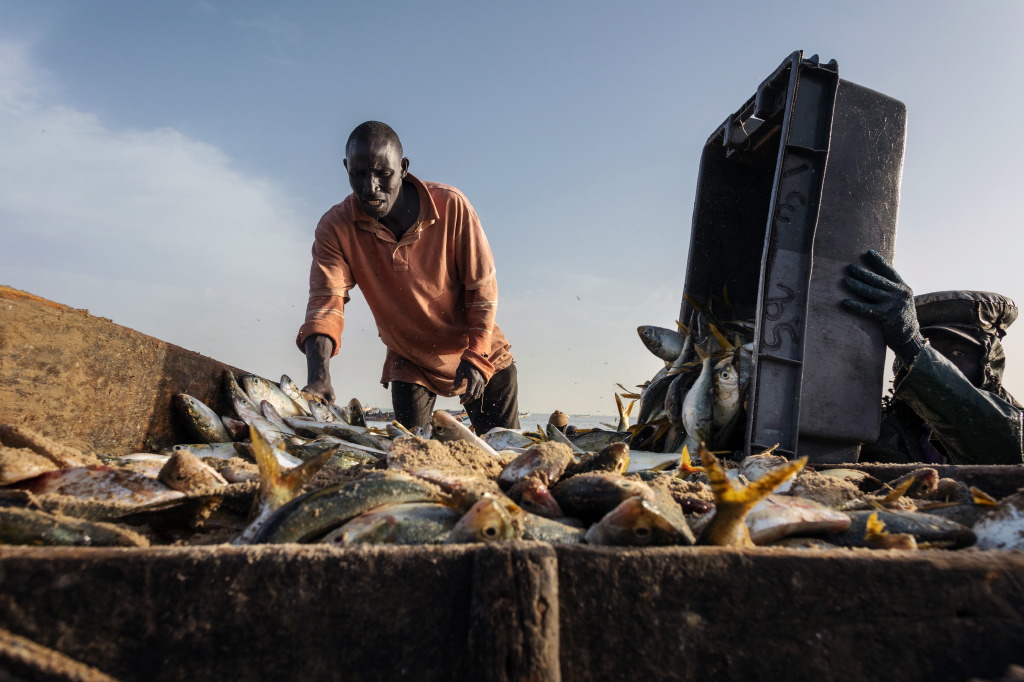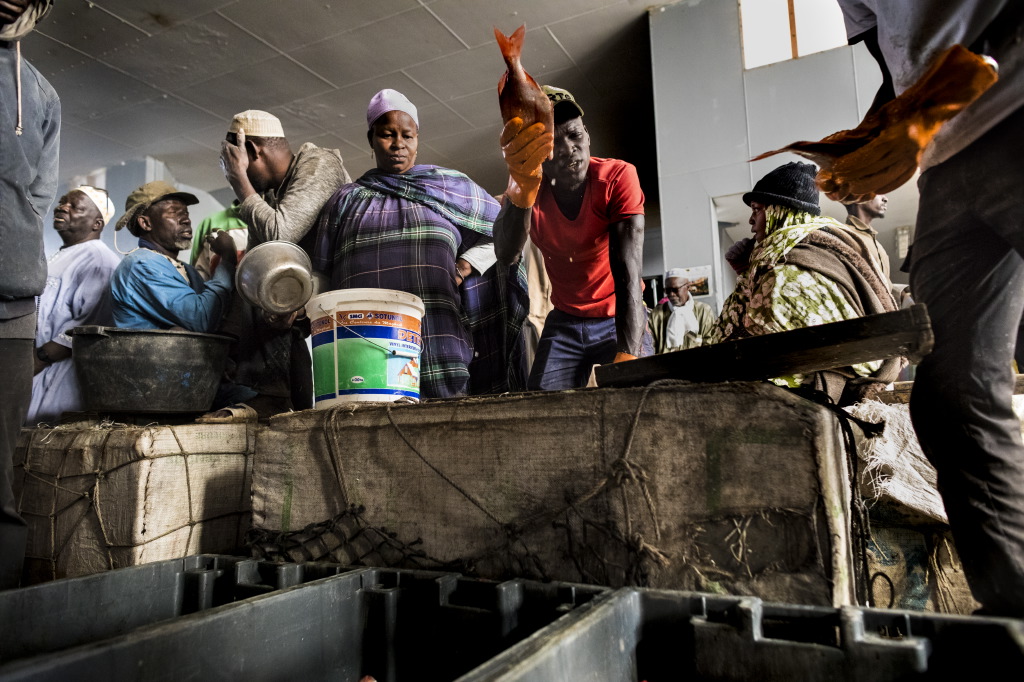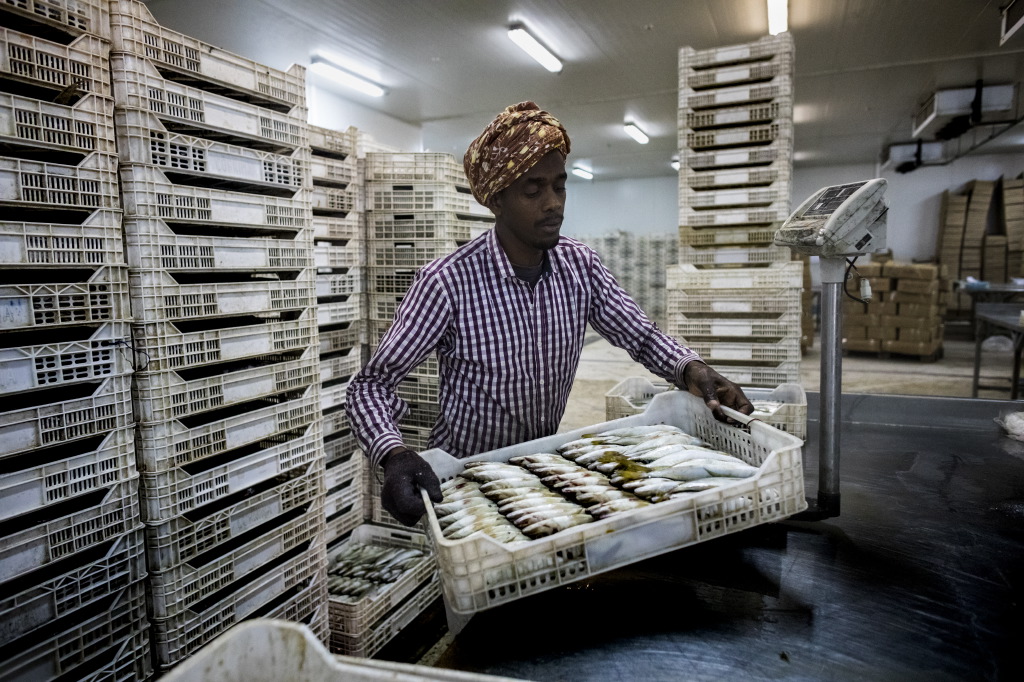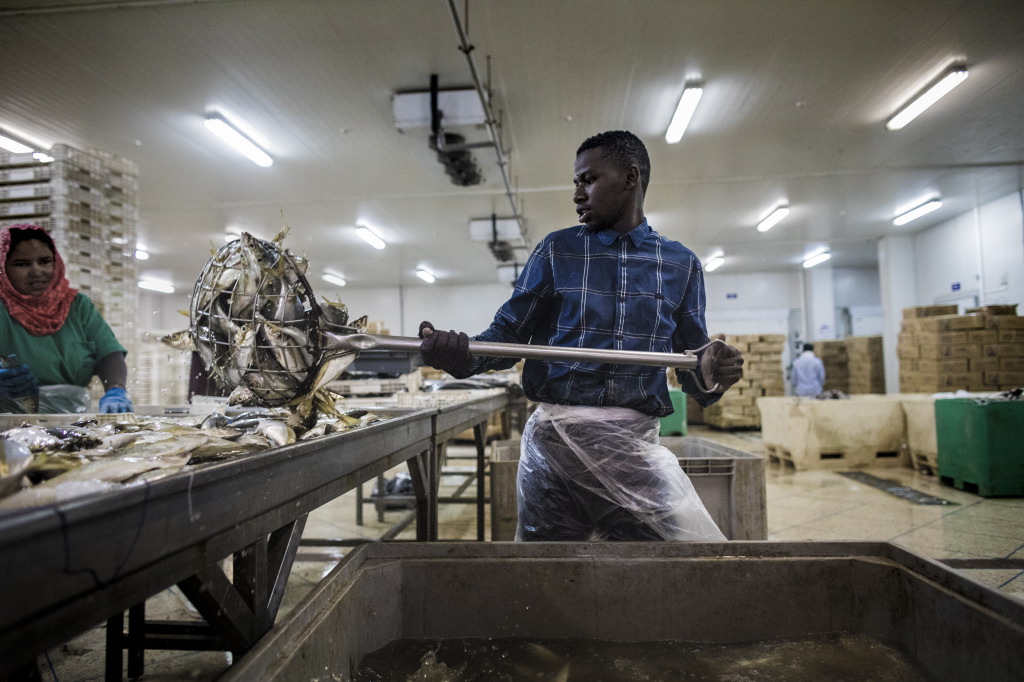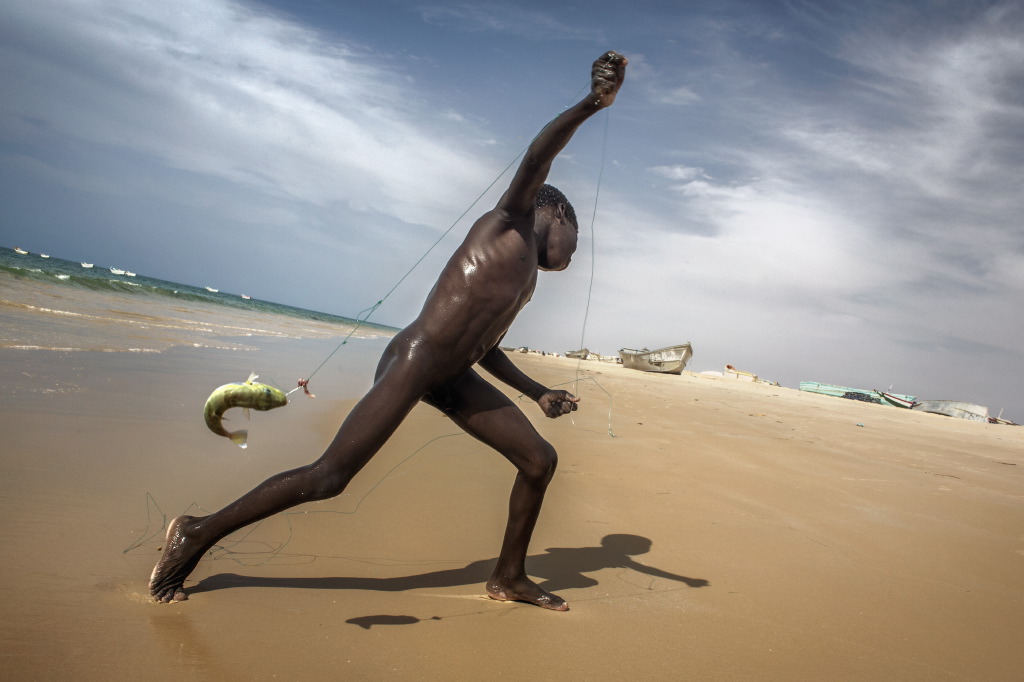X
The unstoppable Chinese demand, pushing fish flour price rise to record levels, pushed concerned Companies to focus on Western Africa, a very rich supply source, New plants are built along Mauritania coast and global trade interests are endangering local communities’ livelihood. Based on the recent report by Greenpeace International “A Waste of Fish”, a wasteful of hundred thousand of fish tons suitable for human food is occurring to meet the expanding fishmeal and fish oil industry, with a potential impact on more than 40 million African consumers. Fishing boats coming from Asia, Europe and Western Africa illegally raid waters preserved for local people, thus violating the fishing catch regulations. The magazine “Frontiers in Marine Science” published a report according to which the illegal fishing – not reported nor governed – costs 2,3 billion of US dollars a year to Western Africa economies. Based on the most recent estimates by FAO, most of small pelagic stocks off Western Africa is over-exploited and in the past 25 years the overall catch more than doubled. Yet, between 2014 and 2018, in Mauritania fishmeal and fish oils export doubled, making this Country the biggest exporter in the region, followed by Morocco. Furthermore, climate change and consequent waters warming is causing the fish flow shift. Satellites data show the sea off Mauritania are warning faster than any other part of the equatorial belt, known as “area of tropical convergence”. Nowadays, traditional fishermen must face both new industrial predators and climate change. “Life is tough for anyone working here “ – Sily Bakary says when embarks from Nouakchott beach with some more hundreds of fishermen, to unload the catch from a pirogue – “ but we are fishermen and this is our life, where else could we go?” (Text by Benedetta Cortesi).
